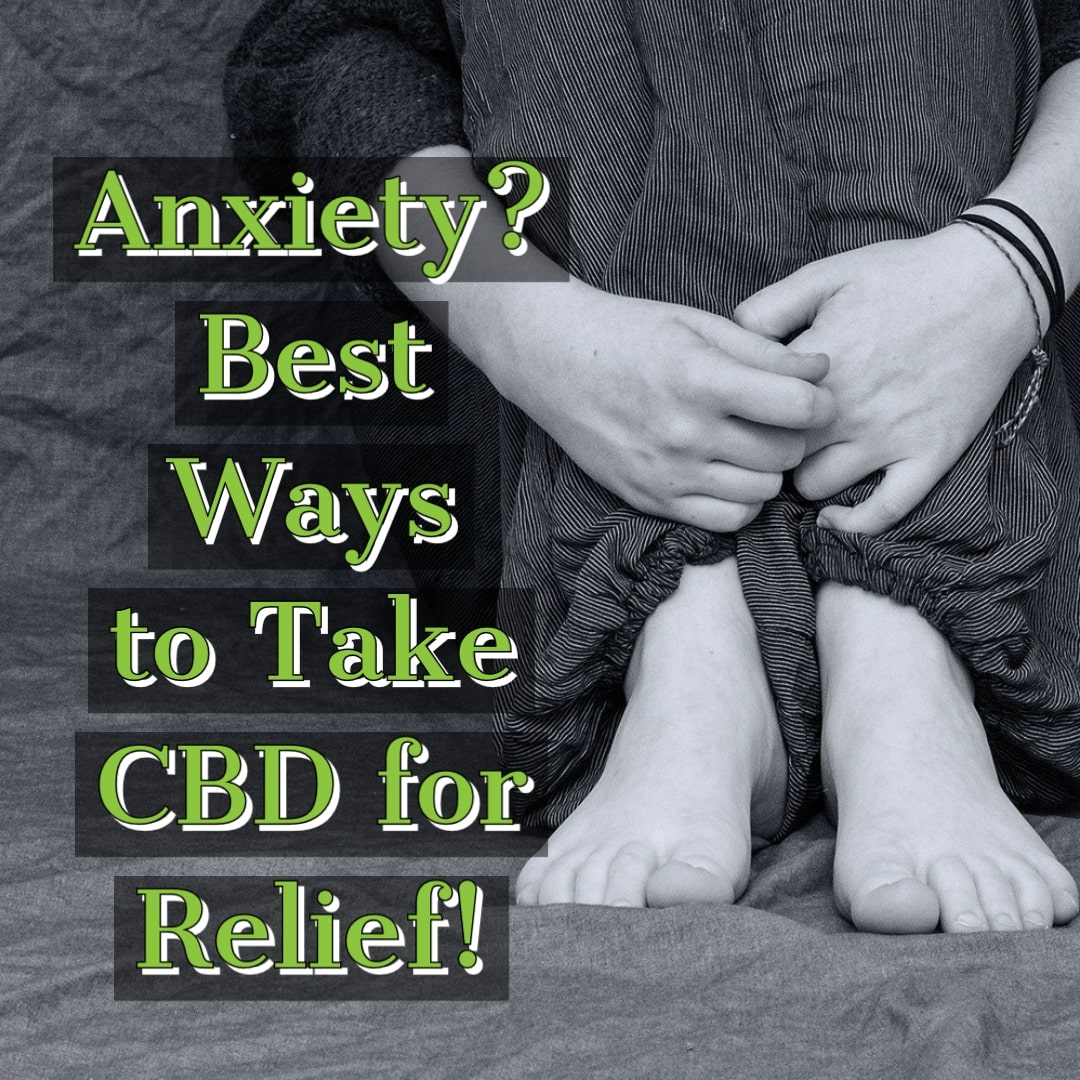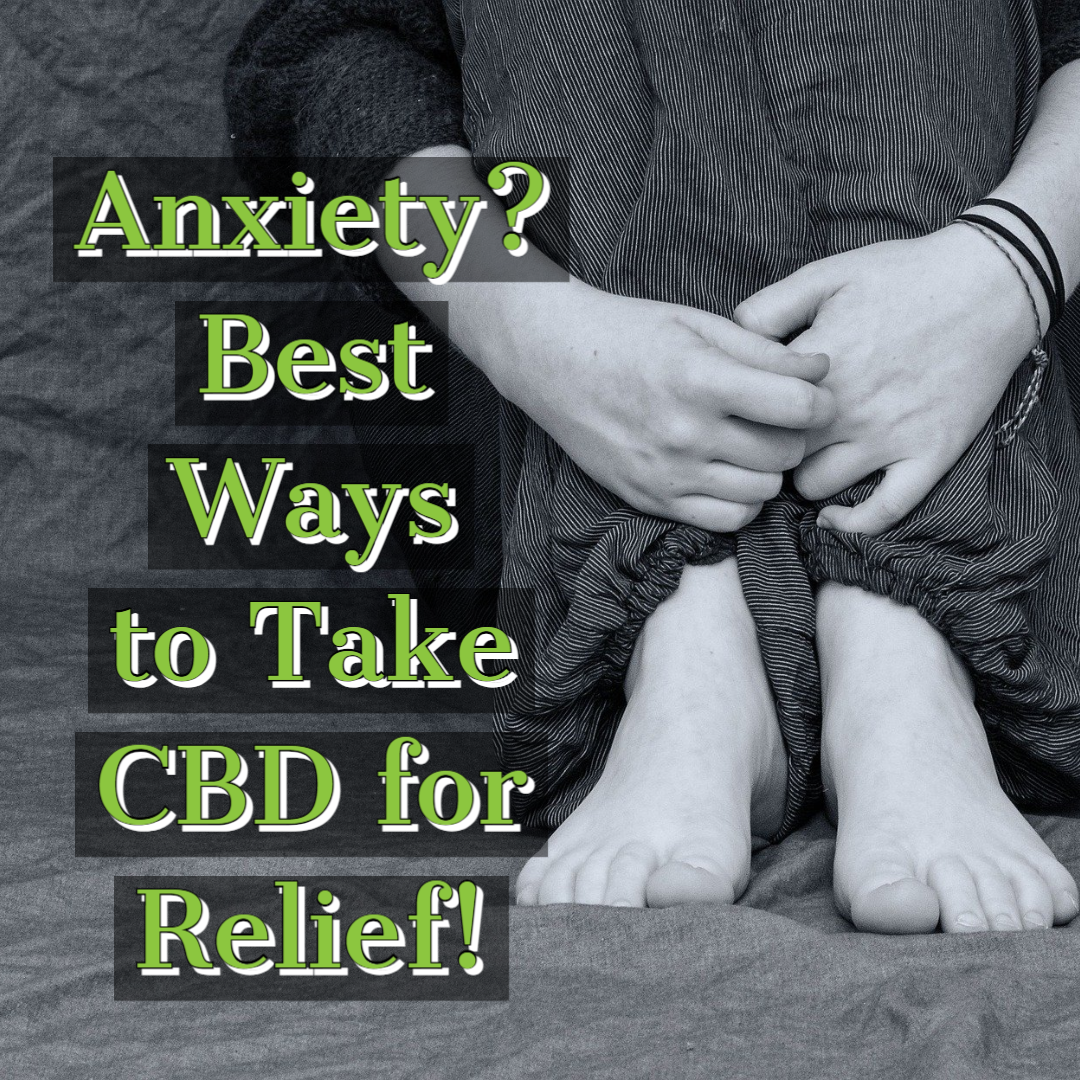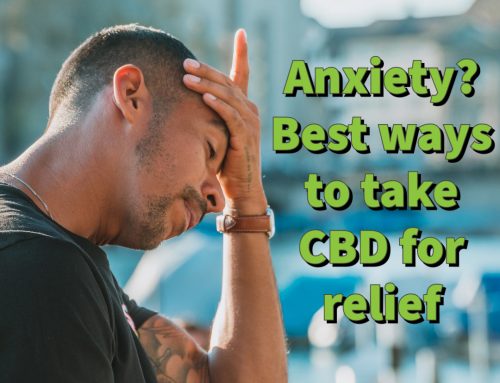Anxiety, it’s something that a good percentage of us deal with at least a few times in our lives. We can have anxiety over almost anything, like an important decision that needs to be made at work, or a school project that needs to be done ASAP. Maybe you even get anxiety over being around other people. Either way, anxiety can affect so many different people, especially as of 2020/2021. According to a recent study, about 3.6 percent, or 264 million people around the world, have anxiety disorders. Within these numbers, there are different types of anxiety disorders, some cases more severe than others. While CBD can help with this condition, there is no proper “cure” for anxiety. Talk to your doctor or a licensed professional if you are experiencing conditions such as PTSD, OCD, Depression, or other conditions that have are having extreme effects on your day-to-day life.
For now, let’s dive into what CBD exactly is and what is the best way to take it to help you. Cannabidiol (CBD) is a type of cannabinoid, a chemical found naturally in cannabis (marijuana and hemp) plants. Early research is promising regarding the ability of CBD oil to help relieve anxiety. Unlike tetrahydrocannabinol (THC), another type of cannabinoid, CBD doesn’t cause any feelings of intoxication or the “high” you may associate with cannabis. CBD is also known for its ability to relieve stress and anxiety in the brain. But how does that exactly work? Well, let’s start by talking about the human body and its many different receptors. CBD is thought to interact with CB1 and CB2 receptors. These receptors are mostly found in the central nervous system and the peripheral nervous system, respectively. These receptors are part of our body’s endocannabinoid system (ECS), this system in the brain is responsible for so many of our day-to-day functions. A few of these functions include mood, sleep, appetite, memory, etc. There is still a lot that is being discovered about this system in our bodies,
what has been found out is amazing. We all have this ECS in our systems, even if you haven’t had any form of cannabis in your system. When we are born, this system in our brains is in a form of homeostasis, though over time it can become unbalanced. That’s where CBD can come in to help. The endocannabinoids can bind to either receptor, the effects that result depend on where the receptor is located and which endocannabinoid it binds to. The CB1 receptors are located in the brain and throughout the body, while CB2 receptors are found mostly in the immune and gastrointestinal system; although CB2 receptors are also found in the brain, they are not expressed quite as densely as CB1
receptors. We have another blog that goes deeper into this topic.
With this, how can CBD help with different levels of anxiety? At AHS, we have many different products that help with differing levels of anxiety. For example, our SoCal gummies (peach rings, neon rings, and sour bears) are an ingestible CBD that is good for on-the-go anxiety or stress. If you feel any precursors to an anxiety attack or know something that causes you stress is coming up, you can take a gummy and
it may help alleviate these symptoms within half an hour or so. This form of intake goes through your digestive system, which the CBD (also having anti-inflammatory properties) can also help with any stomach aches or pains you may be having. Another intake option would be a tincture/CBD oil that works throughout your entire body and more with your brain’s receptors. While gummies are good for anxiety you’re having in the moment, a tincture helps with overall anxiety and bodily care. You take the oil by leaving it under the tongue for about thirty seconds to a minute, allowing the CBD to enter into your blood stream faster. The CBD oil works best when taken in the morning and before bed so it can stay in your system longer. The tincture can help with overall health by putting your brain in homeostasis as mentioned before. It’s like putting part of your body at optimal settings, though if you’re having other medical conditions, always speak to your doctor before trying new treatments. For generalized anxiety disorder (GAD), the National Institute on Drug Abuse (NIDA) says that CBD has been shown to reduce stress in animals such as rats. Study subjects were observed as having lower behavioral signs of anxiety. Their physiological symptoms of anxiety, such as increased heart rate, also improved. CBD may also benefit people with other forms of anxiety, such as social anxiety disorder (SAD) and post- traumatic stress disorder (PTSD). It may help treat anxiety-induced insomnia as well. In 2011, a study
researched CBD’s effects on people with SAD. Participants were given an oral dose of 400 milligrams (mg) of CBD or a placebo. Those who received CBD experienced overall reduced anxiety levels.
If you take any medications, or have any questions on how you should take CBD, we have many specialists and a nurse on staff at AHS who can help with whatever you may need.






Leave A Comment
You must be logged in to post a comment.